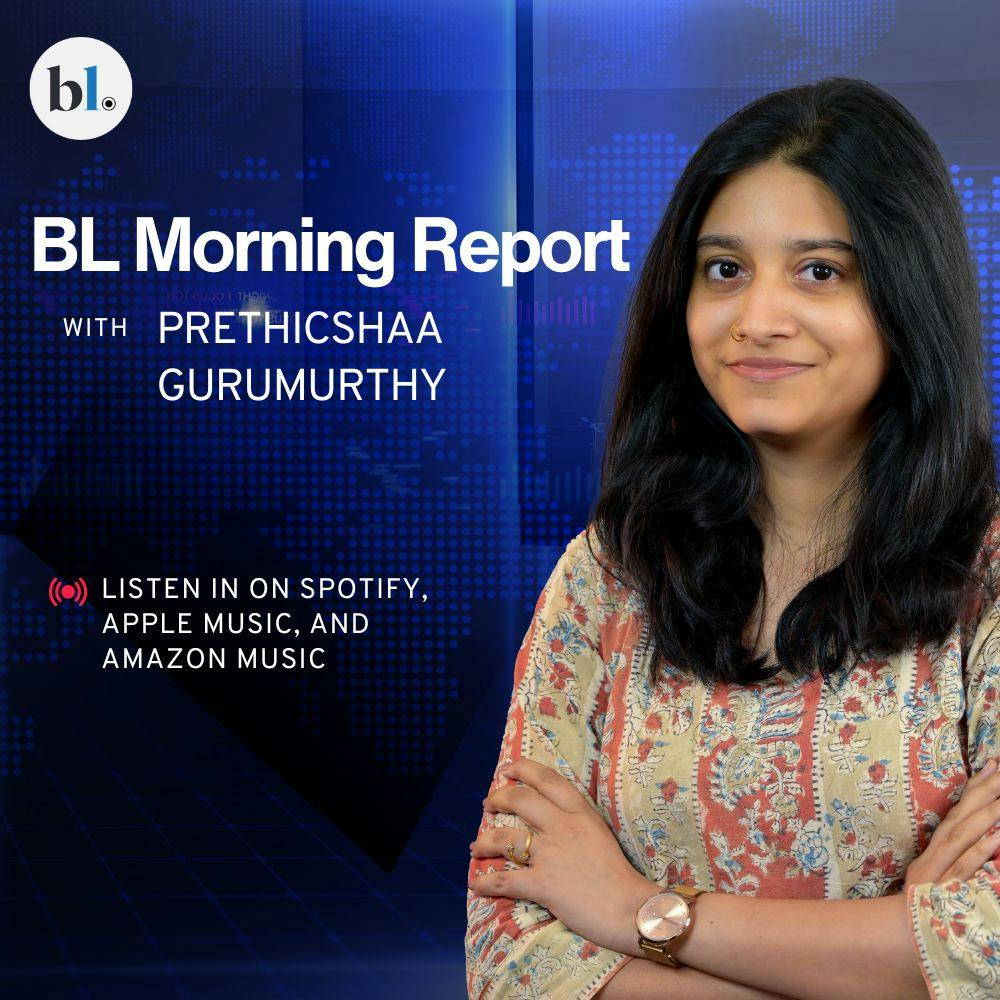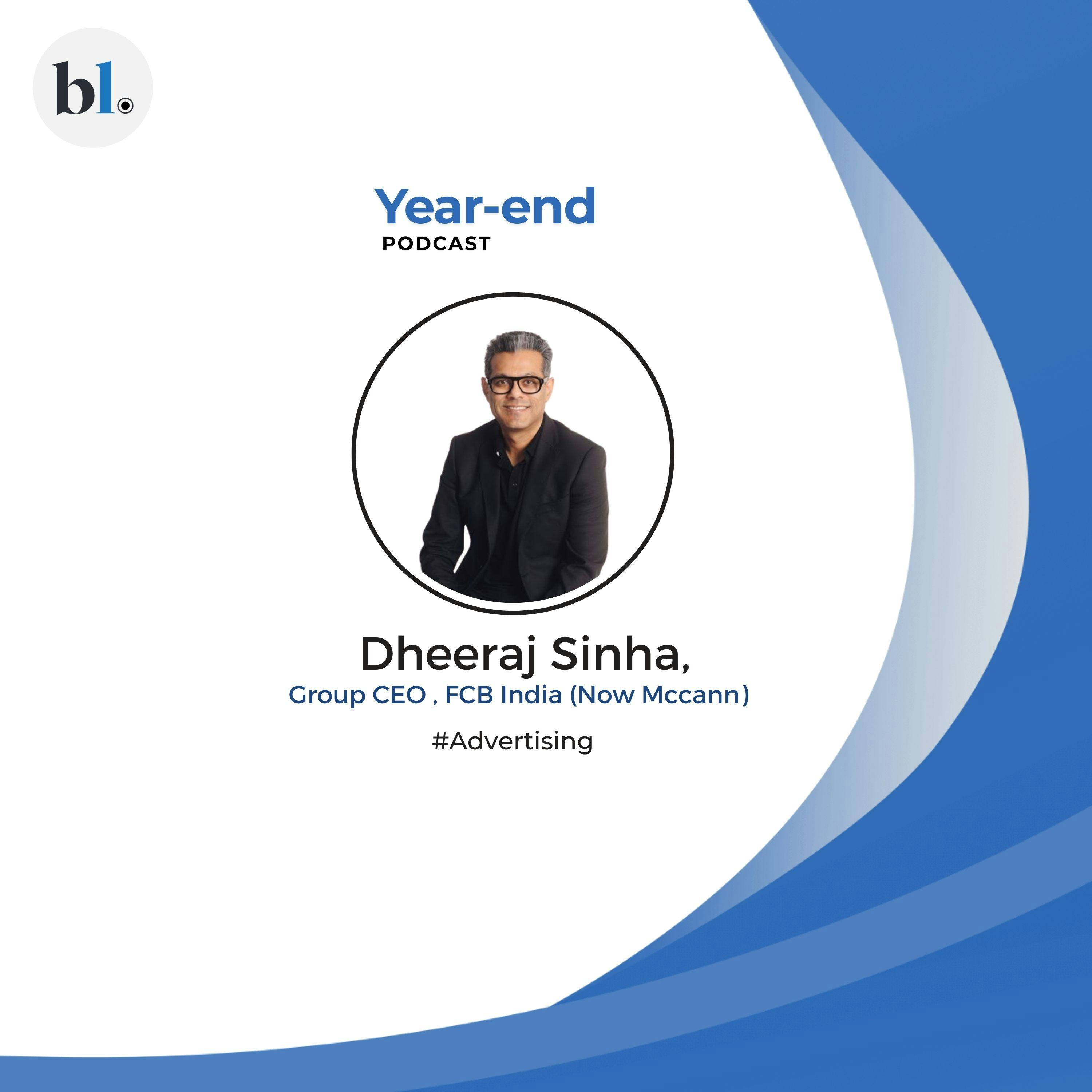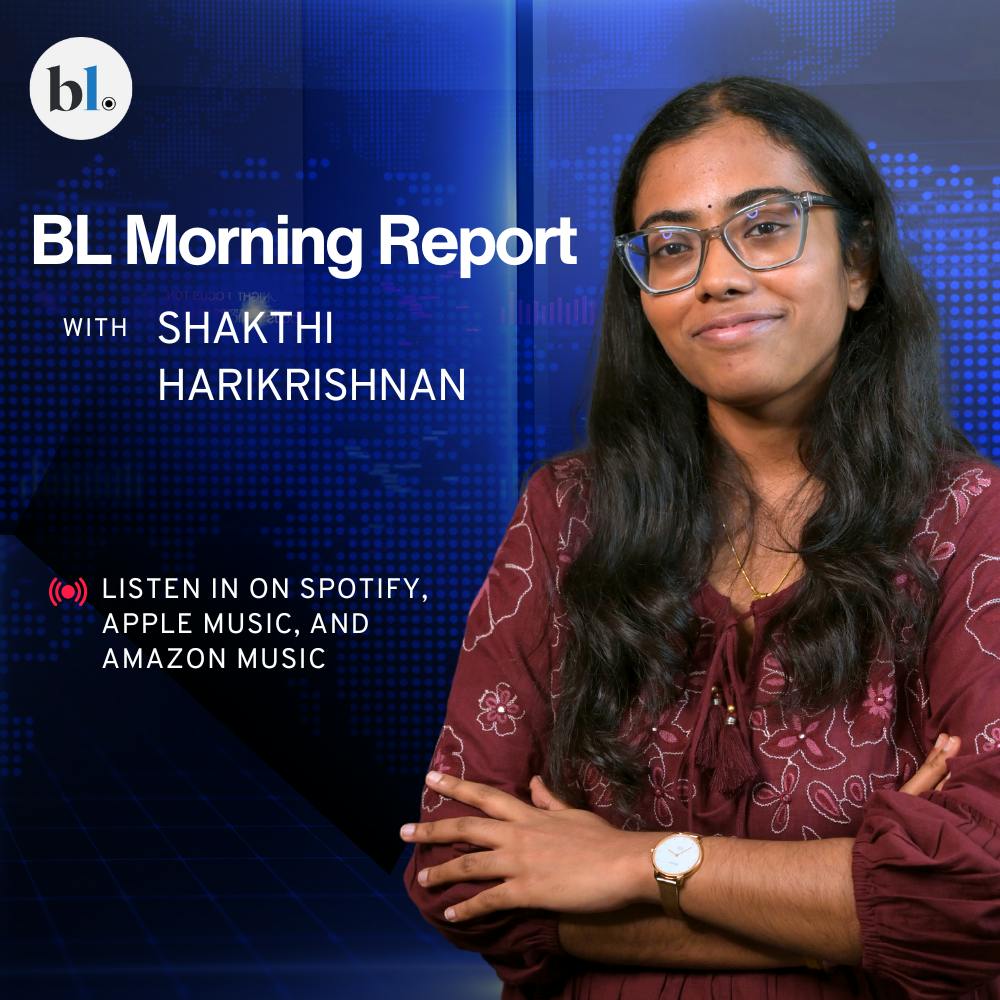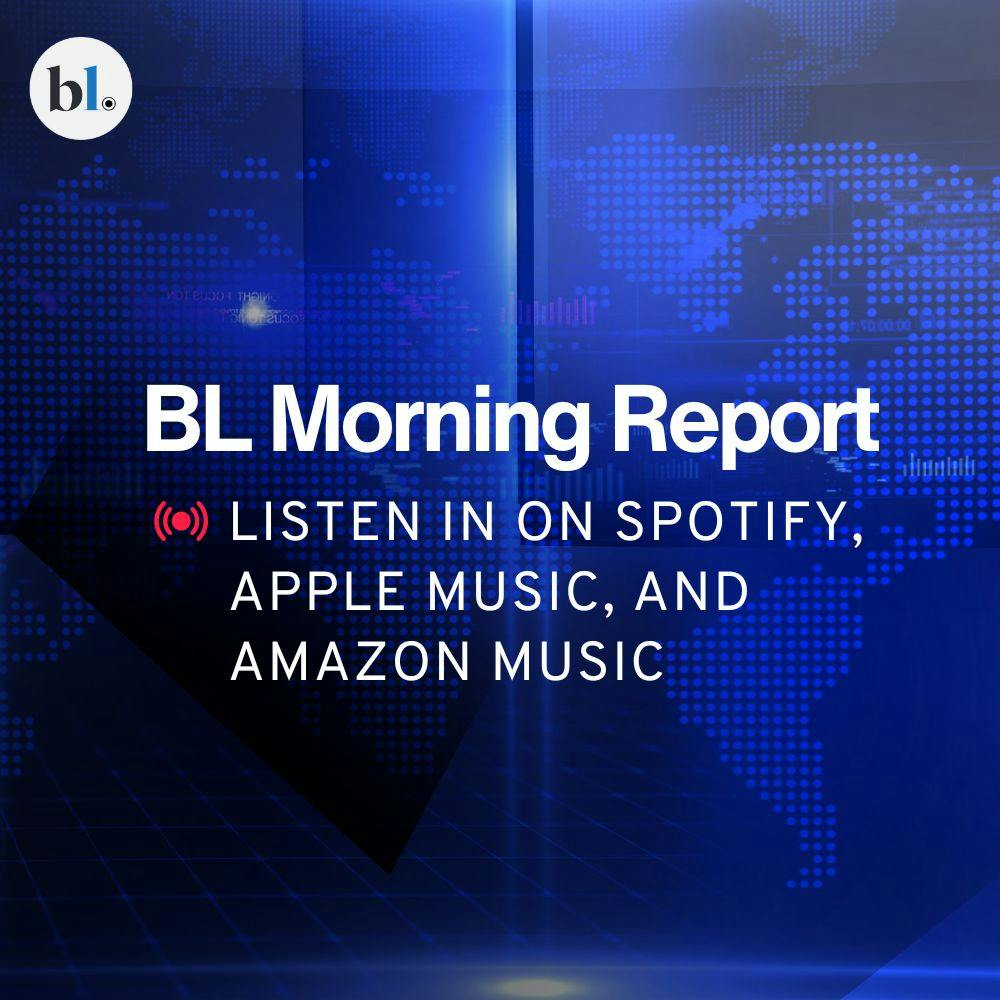Discover BusinessLine Podcasts
BusinessLine Podcasts

BusinessLine Podcasts
Author: BusinessLine
Subscribed: 117Played: 4,583Subscribe
Share
© BusinessLine
Description
Listen to all that you wish to learn about the business world, including mergers and acquisitions, economic policies, start-up companies, technology, agriculture, banking, politics, international affairs and entertainment. Log on to: www.thehindubusinessline.com
1310 Episodes
Reverse
Gold and silver hogged the limelight in 2025, hitting record highs amid global economic slowdown, geopolitical tensions, and currency fluctuations.
In this episode of the Year-end podcast on commodities, Subramani Ra Mancombu speaks with Anindya Banerjee, Head of Currency and Commodity Research at Kotak Securities, to unpack the reasons behind this surge and explore what 2026 holds for precious metals. Will silver outshine gold again?
Tune in for expert insights on trends, risks, and opportunities in the bullion market.
Get today’s top business news, market headlines about the Stock Market, Sensex & Nifty trends, key market insights, economic highlights, and the latest updates from India and global markets.
In this year-end special, businessline’s Chitra Narayanan speaks with Dheeraj Sinha, Group CEO , FCB India (Now McCann), on the dramatic shifts reshaping advertising, from fragmented media and fading attention to influencer fatigue, consolidation, and changing ideas of creativity as 2026 nears.
Sinha unpacks why big-budget campaigns struggle to stand out, what brands misunderstand about a hyper-connected yet lonely Gen Z, and how the industry is moving through a phase of “storming, forming and norming” toward its next chapter.
(Host: Chitra Narayanan, Producer: Prethicshaa Gurumoorthy)
Get today’s top business news, market headlines about the Stock Market, Sensex & Nifty trends, key market insights, economic highlights, and the latest updates from India and global markets.
India’s oil and gas sector saw slower consumption growth, increased reliance on imported crude, pressure on gas infrastructure returns, and policy moves like the unified gas tariff in 2025. As part of the BusinessLine Podcast – Year-Ender Series, Rishi Ranjan Kala speaks to Prashant Vasisht, ICRA Vice President & Co-Group Head (Corporate Ratings) on sectoral challenges, recent achievements, and the road ahead for 2026.
Get today’s top business news, market headlines about the Stock Market, Sensex & Nifty trends, key market insights, economic highlights, and the latest updates from India and global markets.
2025 has been a turning point for AI and tech policy in India. In this year end podcast, businessline's Sindhu Hariharan speaks with Suraj Amonkar, Chief AI Research & Platforms Officer, Fractal Analytics, about how the IndiaAI Mission has accelerated the ecosystem — from GPU access and sovereign model development to AI governance and the rollout of the DPDP Act.
Suraj reflects on why this year marks an inflection point for AI in India, and how Fractal has built on years of deep research to advance foundation models, reasoning systems, diffusion models and agentic AI. He also discusses the company’s growing presence at top global AI conferences, its open-source work — including the Fathom model series and Kaleido diffusion models.
The conversation looks ahead to 2026, examining how the IndiaAI Mission could enable larger, more ambitious models and what that means for India’s role in global AI research and deployment.
Get today’s top business news, market headlines about the Stock Market, Sensex & Nifty trends, key market insights, economic highlights, and the latest updates from India and global markets.
In this episode of the BL year-end podcast on clean tech, Businessline’s M Ramesh speaks to Disha Agarwal, senior programme lead at the Council on Energy, Environment and Water (CEEW), and Dr Vaibhav Chaturvedi, senior fellow at CEEW, on India’s climate and energy story in 2025. They discuss record renewable energy additions, falling costs, and the growing role of battery storage, alongside persistent challenges related to land, grids, and transmission. The conversation also examines India’s national adaptation plan, the development of domestic compliance carbon markets, and the implications of Europe’s carbon border tax for Indian firms, providing a grounded assessment of India’s climate action and its future direction. Here’s what they had to say.
2026 India equity outlook of fund managers: What if ChatGPT, Meta AI, Gemini, DeepSeek and Claude wrote them instead
As 2026 outlooks arrive, fund managers once again use familiar language — constructive, selective, disciplined and long term. Five AI models were asked to replicate this exercise, producing views that prioritise reassurance over clear forecasts.The exercise shows a consistent pattern: acknowledge risks, avoid binary calls and return to the same conclusion — stay invested, remain selective and maintain SIP discipline.
Read more here
Why small-cap funds test investor patience despite SIP discipline
Small-cap funds have attracted a surge in retail participation, but they come with deeper drawdowns, longer phases of underperformance and higher volatility than mid- and large-cap funds. While SIPs can soften the impact over time, they do not eliminate extended periods of weak returns, making patience and a long investment horizon essential for investors.
Read more here
Why women farmers are India’s most underserved borrowers and how loans can change that?
Women form a large share of India’s agricultural workforce but remain marginal borrowers because limited land ownership and systemic barriers restrict access to formal credit. New collateral-free and simplified lending models are expanding access, helping women manage farm needs, smooth incomes and build financial resilience when credit is provided responsibly.
Read more here
Delhi intensifies GRAP-IV crackdown as over 600 non-compliant industries face closure
Delhi has intensified GRAP Stage IV enforcement, conducting over 3,000 inspections and initiating closure or sealing action against more than 600 non-compliant industrial units. Alongside this, vehicular checks have surged, with nearly 17,000 vehicles inspected in three days, over 12,000 challans issued and close to 1,500 vehicles impounded as authorities target all major pollution sources.
Read more here
(Research: Shakthi, VO: Siddharth Mathew Cherian)
A member of SEBI (Securities and Exchange Board of India) board will be asked to disclose any interest even that of his family member, while participating in the decision making, under a new proposed Bill -The securities markets code, 2025.
Also, the market regulator will have to transfer its surplus to the government.
The proposed law, once enacted, will replace the Securities Contracts (Regulation) Act, the Securities and Exchange Board of India Act, 1992 and the Depositories Act, 1996. Now, the Bill will be examined by a select committee before taken for consideration and passage.
The Code further seeks to strengthen investor protection, promote investor education and awareness, and ensure effective and time-bound redressal of investor grievances.
Moving on to the aviation sector…The Competition Commission of India (CCI) on Thursday initiated proceedings against IndiGo under the provisions of the Competition Act, 2002 for recent flight disruptions across various routes.
According to a CCI communique, based on an “initial assessment” of the disruption in the aviation sector, proceedings will be initiated under the anti-competition law.
What this means is that the Commission has formed a prima facie opinion about evidence of a market disruption caused by IndiGo’s market dominance, to warrant a formal probe. The will follow a formal inquiry by the Director-General, which has the power to summon executives, record statements and demand internal company documents or mails.
From aviation, let’s turn to technology and manufacturing…India’s newly-established semiconductor manufacturing units have begun production of commercial chips, marking a major milestone in the country’s efforts to build a domestic electronics and manufacturing ecosystem, a top government official said on Thursday.
Speaking on the sidelines of an event, S Krishnan, Secretary, Ministry of Electronics and Information Technology (MeitY) said that India’s semiconductor programme was moving steadily towards full commitment under its first phase.Next, some big leadership changes in telecom…Bharti Airtel on Thursday said Shashwat Sharma, currently the CEO Designate, is all set to assume charge as Managing Director and CEO of the telco with effect from January 1, 2026.
The board of India's second-largest telecom company has also greenlit the appointment of Vice Chairman and MD Gopal Vittal as Executive Vice Chairman from January 1, 2026, for five years, subject to the shareholders' approval.
The board cleared the appointment of Chief Financial Officer Soumen Ray as Group Chief Financial Officer and Akhil Garg as Chief Financial Officer (Airtel India), effective January 1, 2026.
Finally, a major development in Parliament…The Lok Sabha Speaker on Thursday passed the Viksit Bharat Guarantee for Rozgar and Ajeevika Mission (Gramin) (VB-G RAM G) Bill, 2025 that replaces the 20-year-old Mahatma Gandhi National Rural Employment Guarantee Act (MGNREGA) amid tearing of the copies of the bill by opposition members.
High operating costs have long posed a challenge for Indian airlines, and the weakness of the rupee has exacerbated the issue. India is a highly competitive and price-sensitive market. Yet Indian airlines and airports continue to invest in growth and adopt new technologies and solutions to improve efficiency.
As part of tbusinessline's year-end podcast, Aneesh Phadnis speaks to Sumesh Patel, President for the Asia-Pacific region at SITA, a specialist in air transport communications and information technology, to discuss the outlook for Indian aviation.
(Host: Aneesh Phadnis, Producer: Siddharth MC)
Your Thursday morning business and economy update
Rural jobs revamp, regulatory scrutiny, and IBC reform momentum.
🎧 On today’s episode: The Centre’s MGNREGA spending may drop by nearly a third under the new Viksit Bharat – Gramin Rozgar and Ajeevika Mission law, SEBI reviews a proposal to make top officials disclose their assets amid privacy concerns, and a parliamentary panel calls for tighter timelines and clearer rules in the IBC overhaul.
In this episode of the BusinessLine Podcast – Year-Ender Series, Amiti Sen is joined by Biswajit Dhar, trade expert and former Professor at Jawaharlal Nehru University, to explore how India has navigated the geopolitically turbulent waters of 2025 and the impact on its international trade.
Highlighting India’s approach to strategic autonomy, “India has actually signalled that it is going to look after its own interests, very much in the way that President Trump has signalled to the rest of the world that he is concerned about US interests and little else,” says Professor Dhar.
He further stresses the importance of this strategic positioning as countries move away from mutual interdependence. “In today’s world, these kinds of mutual interdependence seem to have gone out of the window... every country will have to look at its own strategic interests, and India has done this,” Dhar adds.
The conversation also touches on India’s growing number of Free Trade Agreements (FTAs) and its emphasis on diversifying trade partners, especially with the Global South.
He advocates for stronger ties with developing nations, explaining, “Most of these countries have similar interests as ours... in critical areas like intellectual property and other issues such as standards, where the developing countries’ standards are much more aligned with India’s,”.
Looking ahead to 2026, Professor Dhar underscores the importance of prioritising partnerships with Africa and Central Asia, where India’s interests are best served.
(Host: Amiti Sen; Producer: Siddharth MC)
Your Wednesday morning business and economy update
Rupee slides, rural jobs reboot, and record IPL bids.
🎧 On today’s episode: The rupee breaches a historic ₹91 against the dollar as markets tumble on FII outflows, the government introduces the Viksit Bharat Bill to replace MGNREGA sparking a storm in Parliament, and uncapped stars Kartik Sharma and Prashant Veer fetch over ₹14 crore each at the IPL 2026 auction.
Your Tuesday morning business and economy update
Trade surge, rural jobs overhaul, and major investment moves.
🎧 On today’s episode: India’s trade deficit narrows sharply on record exports, a new bill proposes replacing MGNREGA with the Viksit Bharat Guarantee, and Mitsubishi UFJ eyes a $3.2 billion stake in Shriram Finance as Japan deepens its push into India.
Your Monday morning markets and industry update
IPOs, crude oil, aviation, and food systems
🎧 On today’s episode: The IPO boom faces slowing gains, Russian crude flows rise on discounts, India’s first private trainer aircraft takes shape, and food security is highlighted as a strategic necessity.
1.India among nations hit as Mexico raises import duties up to 50%
On December 10, Mexico’s Senate approved tariff hikes of up to 50% next year on imports from China and several other Asian countries, aiming to bolster local industry despite opposition from business groups and affected governments.
The proposal, passed earlier by the lower house, will raise or impose new duties of up to 50% from 2026 on certain goods such as autos, auto parts, textiles, clothing, plastics and steel from countries without trade deals with Mexico, including China, India, South Korea, Thailand and Indonesia. The majority of products will see tariffs of up to 35%.
The import duty on cars will rise to 50 per cent from 20 per cent, dealing a significant blow to India’s largest vehicle exporters to Mexico including Volkswagen, Hyundai, Nissan and Maruti Suzuki.
2.Microsoft deepens India bet with AI tie-ups and 200,000 Copilot licenses across top IT firms, and CEO Satya Nadella develops his own cricket app
Microsoft Chairman and CEO Satya Nadella has announced partnerships with four Indian IT companies — Cognizant, Infosys, TCS, and Wipro. Each company will deploy over 50,000 Microsoft Copilot licenses, collectively surpassing 200,000 licenses, and setting a new benchmark for enterprise-scale AI adoption.
On a side note, Satya Nadella, a die-hard cricket fan, has been spending his free time coding and designing his own app that he used to analyze the centuries-old game.
He talked about combining two of his passions when he designed a Deep Research AI app over Thanksgiving. He then used it to select a team of all-time greats in Indian test cricket, for starters.
“The system produced consensus areas, debates, reasoning chains, everything. It was fantastic,” Nadella said during a company event in Bangalore. “I wanted to get a job on the Copilot team.”
Nadella is meeting business and political leaders in India this week.
3.IndiGo to give travel vouchers worth ₹10,000 to affected passengers
IndiGo on Thursday said it will offer travel vouchers worth ₹10,000 to passengers impacted by flight disruption on December 3-5. These can be used for any future IndiGo flight in 12 months.
The travel vouchers will be in addition to compensation payable under government norms. Directorate General of Civil Aviation norms require airlines to pay compensation of ₹,5000-10,000 to passengers whose flights are cancelled within 24 hours of departure time. The announcement comes a day after Delhi High Court asked why the airline was not paying compensation. The court also questioned the government for its failure to prevent the chaos.
4.Prada to launch ‘Made in India’ Kolhapuri chappals after backlash
Prada will make a limited-edition collection of Kolhapuri chappals in India inspired by India’s traditional footwear -Kolhapuri sandals, selling each pair at around $930(₹84,000), turning a backlash over cultural appropriation into a collaboration with Indian artisans.
The Italian luxury group plans to make 2,000 pairs of Kolhapuri chappals in the regions of Maharashtra and Karnataka under a deal with two state-backed cooperative bodies.
Amazon to invest over $35 billion in India till 2030 across its businesses
E-commerce major Amazon on Wednesday said it will make fresh investments of over $35 billion across all its businesses in the country till 2030. These investments will focus on business expansion as well as driving digitisation and export growth. It added that it plans to create one million additional job opportunities and deliver AI benefits to 15 million small businesses and Indian consumers.
According to Amazon, Since 2010, the company has invested nearly $40 billion in India and has enabled over $20 billion in cumulative e-commerce exports, reports Meenakshi Verma Ambwani.
H1B visa interviews of thousands of applicants in India cancelled triggering outrage
Pre-scheduled interviews of thousands of H-1B visa applicants slated for later this month in India have been abruptly postponed by several months apparently to scrutinise their social media posts and online profiles.
Some of the applicants, whose visa appointments were scheduled next week, have received e-mails from US immigration authorities informing that their interviews are being pushed back as late as May next year.
The mass cancellation of scheduled interviews of the H-1B visa applicants in view of the enhanced vetting measures is set to result in significant delays in their return to the US. The rescheduling of the interviews is for all applicants who were previously given appointments from December 15 onwards.
Most of them were already in India and are now unable to return to the US pending their new interview dates since they don’t have a valid H1B visa to travel back to the US for their jobs.
DGCA summons IndiGo CEO Pieter Elbers to explain mass flight cancellations
India’s aviation safety regulator has summoned IndiGo’s Chief Executive Pieter Elbers on Thursday to present facts related to the recent mass cancellation of flights.
The Directorate General of Civil Aviation (DGCA) has directed the airline’s Chief Executive to present comprehensive data and updates relating to the recent operational disruptions. Elbers has been instructed to submit a complete report and appear before the DGCA on December 11, 2025.
Sluggish growth in own tax revenue of most large States in FY26
At a time when GST rates have been lowered and states don’t receive GST compensation cess either, the own tax revenue (OTR) of states becomes more significant. businessline analysis of OTR data from CAG shows that the growth of this revenue has been sluggish for some of the top states in FY26.
Gujarat’s OTR for April–October 2025 has grown by about 13 per cent over last year. This is the highest increase among the 10 biggest states in India (by GDP). Growth of OTR in some of the larger states such as Tamil Nadu, Uttar Pradesh, Andhra Pradesh and Madhya Pradesh was anaemic, below 5 per cent. Only four of the ten large states have crossed half of their budgeted own tax collections by October 2025, reports Sindhu Hariharan.
Microsoft commits USD 17.5 billion investment in India: CEO Satya Nadella
Microsoft plans to invest USD 17.5 billion (around Rs 1.58 lakh crore) in India to help build infrastructure, skills, and sovereign capabilities needed for the country’s AI future, CEO Satya Nadella said on social media platform X.
“To support the country’s ambitions, Microsoft is committing USD17.5B—our largest investment ever in Asia—to help build the infrastructure, skills, and sovereign capabilities needed for India’s AI-first future,” Nadella said on X after meeting Prime Minister Narendra Modi.
Microsoft, in a statement, said the company plans to invest USD 17.5 billion in India over the next four years (2026-2029) to drive AI diffusion at a population scale.
This comes on top of Microsoft’s earlier commitment of USD 3 billion announced in January 2025
Govt cuts IndiGo’s flight schedule by 10 per cent: Civil Aviation Minister K Rammohan Naidu
The Civil Aviation Minister has asked for a 10 per cent cut in planned IndiGo flights to help restore order at India’s biggest airline, which cancelled thousands of flights nationwide after failing to plan for tighter safety regulations.
Posting a picture of IndiGo CEO Pieter Elbers, sitting with folded hands in front of him, Minister Ram Mohan Naidu, in a post on X, said that the airline management was summoned to the ministry to provide an update.
The curtailment is double of what the sector regulator DGCA had ordered on Monday.
JioHotstar to invest ₹4,000 crore for South Indian content push
Streaming service JioHotstar has announced that it will be investing ₹4,000 crore over the next five years to strengthen South India’s creative economy.
Sushant Sreeram, Head – SVOD Business & Chief Marketing Officer at JioStar, said the investment forms part of a broader collaboration with the Tamil Nadu government.
He said that “As part of this vision, JioHotstar will invest ₹4,000 crore to nurture creators, strengthen the production ecosystem and build a pipeline of stories that are ready for India and ready for the world,”
On December 9, JioHotstar formalised a Letter of Intent with the Government of Tamil Nadu in the presence of the Chief Minister, MK Stalin.
SBI to hire around 16,000 people each fiscal, open 200-300 branches in FY26: Chairman
India’s largest lender State Bank of India (SBI) will hire 16,000 employees in current financial year and will hire a similar number of employees each fiscal to aid its business expansion plans and beef up its customer service, chairman CS Setty told businessline in an interaction. The bank also intends to fill “white spaces” by opening 200-300 branches this fiscal, he said.
The employee hiring and physical network expansion moves are in-line with the lender’s plan to double its business size to ₹200 lakh crore in 6-7 years from ₹100 lakh crore in Q2FY26, report Piyush Shukla and K Ram Kumar.























